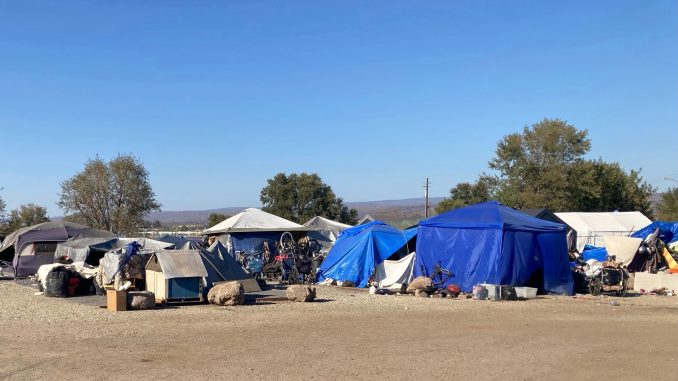
By Ken Magri
Chico City Councilman Addison Winslow sits on the roof of Stoble Coffee Roasters, casually dressed while hanging onto a latte, a positive mood and a head full of facts.
As the lone dissenter at recent Chico City Council meetings, the 29-year old is a good-natured warrior who gets routinely outvoted 6-1 on matters regarding the homeless, a topic he is passionate about.
“It is considered the biggest problem we have,” Winslow said.
If Winslow is frustrated watching his ideas get voted down, or not even discussed, it doesn’t show. Elected to the city council in 2022, he has done his best to approach homelessness with more compassion while pointing out what he sees as faults in the council majority’s approach.
Blessed with a mind for minute details, Winslow sure can talk. He sometimes annoys fellow council members with elongated arguments while adding little asides or correcting a misplaced comma when reading aloud someone else’s statement.
“They want to breeze through it, and it’s always like I’m nitpicking something because they don’t want to have the conversation,” said Winslow about the impatience of his fellow council members. “They complain about me talking as if that’s not what the meetings are for.”
Such was the case on September 17th, when the council discussed its official response to a recent Grand Jury report critical of its homeless policies. Winslow made point-by-point comments in disagreement with the majority’s response before parlaying those remarks into a related discussion of the Warren vs. Chico Settlement agreement, a five-year road map for setting homeless policies.
The Warren vs. Chico Settlement agreement
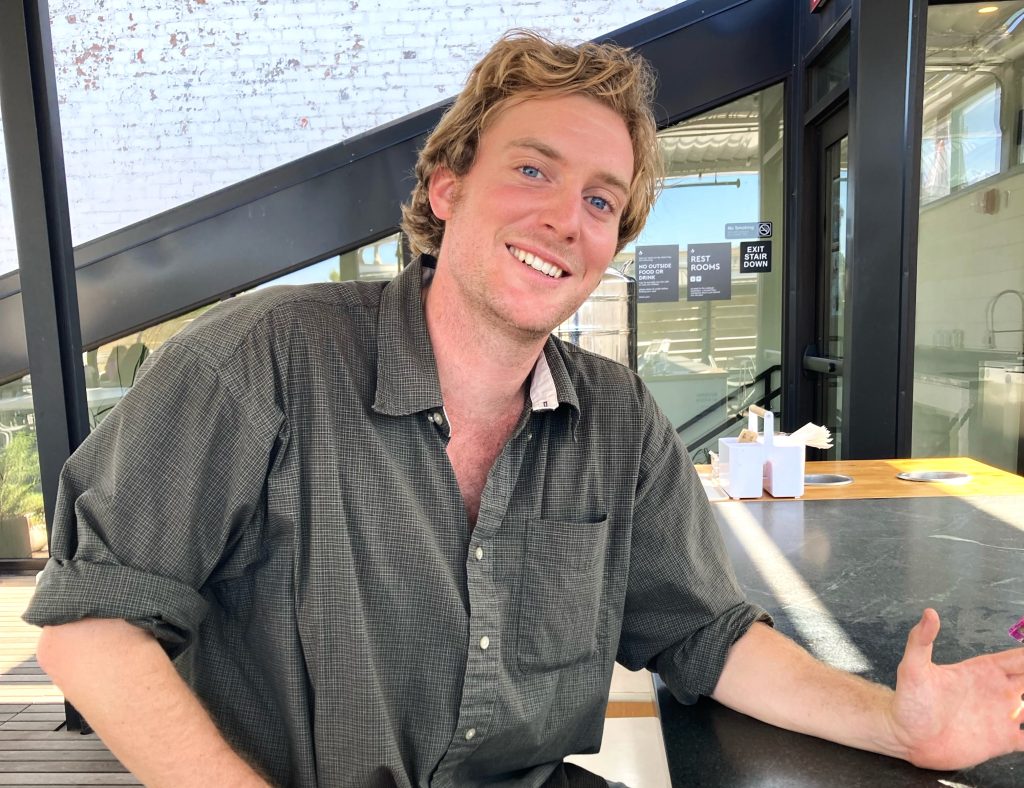
This 2021 legally-binding agreement came from a lawsuit brought by eight homeless persons represented through the Legal Services of Northern California (LSNC). It sought relief from Chico’s unlawful evictions and unwarranted seizures of property. Now, two years into a five-year agreement, the council majority is asking the court to get the provisions renegotiated.
The majority of council members feel that the Warren vs. Chico Settlement agreement became obsolete after a 2023 US Supreme Court decision, “City of Grants Pass vs. Johnson” ruled that cities can clear out homeless encampments without first offering alternative shelter. The council majority also claims that preconditions in the agreement are “completely unworkable and ineffective” after two years and more than $12 million spent.
But Winslow counters that the city council deliberately slow-walked its agreed upon responsibilities by creating higher barriers for entry into a shelter, by causing a backlog to wait-list shelter requests, and by forcing homeless persons to repeatedly relocate back and forth across town. Just as the LSNC argued in its response to this filing, Winslow feels the Warren vs. Chico Settlement agreement is indeed workable, but the council majority stalled further implementation so it could make the “unworkable” claim now being presented in court.
“The court stepped in because the city gave it no other choice,” said Winslow at the September 17th meeting.
The pallet shelter on South Whitman Place, officially known as the Genesis Emergency Housing Site, was a direct result of the Warren vs. Chico Settlement agreement. That site became operational before the 2022 election was even held. With competent management and ample resources, the shelter has been a success over the last two years. Far from “unworkable,” it helped 541 people escape homelessness and get into a managed shelter, as a recent two-year report illustrated.
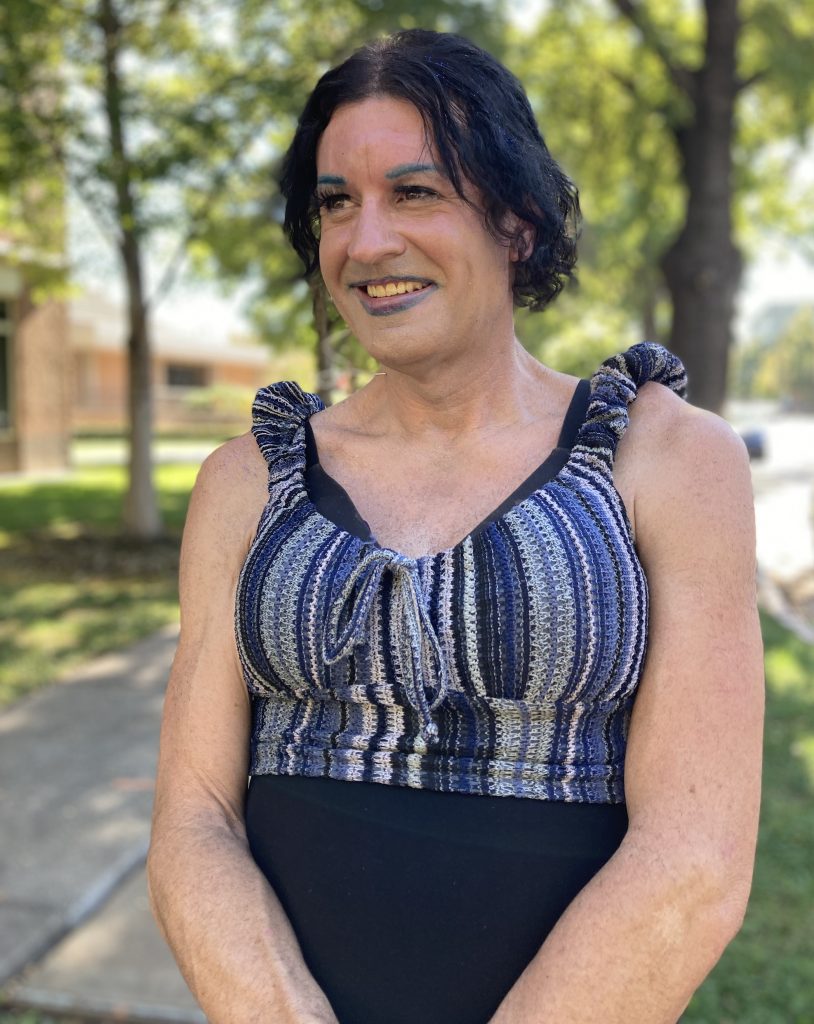
Chico’s homeless situation got supercharged with the 2018 Camp Fire, when 20,000 displaced residents from the Paradise area evacuated to Chico, instantly increasing its population by one-fifth. Some claim the free handouts to evacuees lured in more homeless from across the country, but Winslow said there is no serious evidence of that.
“Chico looked like a Hell-scape during the Camp Fire,” he noted. “There were never enough sustained services that it would have made sense for people to travel to a disaster area.”
Nevertheless, the evacuees needed a place to live. Although the cost of rentals was still being controlled, home sales weren’t. Winslow estimated that the sale price of homes increased by about 20% in one month. Landlords who typically rented out those houses took quick profits by selling them. It caused a secondary displacement and made the rental shortage even worse.
Five days before the Camp Fire started Chico elected a new city council, flipping it from conservative to liberal control. That majority didn’t do much about homelessness for the first year, Winslow says. But in 2020, City Councilmember Alex Brown initiated the “Brown New Deal,” decriminalizing homelessness. As the liberal majority city council eased its eviction policies, homeless encampments popped up in several locations and especially inside Bidwell and Upper Bidwell Parks.
Winslow said that the Brown New Deal, combined with a new needle-exchange policy enacted by the city council, became so unsettling to Chico voters that they flipped the majority once again and voted conservatives back in for the 2022 election.
“I think the liberals were really dumb for putting so many things like that on the agenda,” said Winslow, who had just been elected himself.
He would become the only liberal on the seven-member city council.
Winslow feels that his fellow council members try to work around the Warren vs. Chico Settlement agreement, and that petitioning to renegotiate it is asking the judge to validate policies that re-criminalize Chico’s unhoused instead of transitioning them into shelters or out of homelessness entirely.
The alternative homeless site at Eaton Road
One of the city’s current problems is the unmanaged alternative homeless site mandated by the agreement and located at Cohasset and Eaton Roads. Alternative sites exist to accommodate chronic homeless persons who the city determines, or “assesses,” are in need and eligible but cannot qualify for referral to a managed shelter. Among other reasons, they might own too many pets or have past felony convictions.
While being unmanaged the alternative Eaton site became unruly, with drug overdoses, clutter everywhere and lax city services. Last August, a Butte County Grand Jury report criticized Chico for not emptying dumpsters at the site, not cleaning the portable restrooms, or even informing residents there were free social services they could access by themselves, using the 2-1-1 phone number.
Instead of making necessary improvements for everyone, a “public works operation” was declared in place of an unauthorized “police eviction.” That allowed the city to remove tons of trash and evict 60 residents, about two-thirds of the population, by saying they never went through an assessment.
But even after a clean-up, the alternative Eaton site feels more like a neglected squatter’s camp than an official city-maintained shelter. Amounting to little more than a cluster of tarps in a fenced-off section of dirt and gravel, the site has no shade trees and one single water spigot, donated from a hose line stretching from across the street.
The site also receives regular harassment from the public that creates a sense of anxiety for the 15 to 20 people legally allowed to be there. Amita Gerfin, a Chico native who has been homeless since adulthood, listed some of the objects angry citizens have thrown over or shot through the fence while passing by. “Fireworks, rocks, golf balls, B-Bs, M-80s and ice bombs,” she said. Ice bombs are explosives made with dry ice and empty 2-liter soda bottles. “We have to keep a 24-hour watch out here,” she told the News and Review. Then, perhaps worn down by the summer sun, Gerfin began to cry.
Hopeful of a favorable ruling, the city informed U.S. District Court Judge Dale Drozd that it intends to permanently close the alternative Eaton site at the end of 2024, even though the agreement runs until 2027. “We talked about elements of management there,” says Winslow, “but the city threw that out the door once the [Supreme Court ruling] went up.” He said that the 60 persons evicted from the site for not being assessed couldn’t get an assessment for any other shelters either.
The North State Shelter Team, a local non-profit that assists the unhoused, went to the city council asking to discuss managing the alternative Eaton site. But the city manager maintained that the non-profit made no formal proposal, so the council won’t officially bring it up. “The city has refused help from non-profits,” said Winslow.
Need for a different approach
The advantage to working with non-profit organizations is that they bring in their own resources. Nearby cities like Marysville and Sacramento opened several managed shelters by working with non-profits. They offer amenities like those at Chico’s Genesis site for little extra cost. These often include shower services, women’s services, help with writing resumes and filling out forms, a medical clinic or a lockable space for storing possessions.
“I wish I knew what the answer was,” said Layya Beakley, an LGBTQ+ homeless resident who camped at Depot Park before it was cleared out last October. “One officer said it would be a good idea if I went back to LA,” said Beakley. “Chico wants to discourage the homeless and kick them out, but most of these people are Chico citizens, born and raised here,” they said.
According to the most recent 2023 Point-in-Time federally-mandated homeless count, Chico’s number of homeless is 925, with 370 of those unsheltered.
Winslow says the main concern of Chico’s homeless is the city’s strategy “of whack-a-mole, where we enforce in one area, then run over to another and enforce there.” His solution begins with a multi-tiered eviction policy that first prioritizes “sacred” Chico locations, like creeks, parks and plazas, where everyone would understand camping is never allowed. It would give the city more flexibility, while working alongside non-profit groups, to get individuals assessed and into better shelter situations.
Winslow also hopes for some allies in November, when four conservative seats come up for re-election. A change of three seats will flip the council back from a conservative to a liberal majority. Winslow feels it would give liberals the opportunity to effectively re-address homelessness with more compassion and efficiency, but without making those mistakes from past council majorities which nobody was happy with.

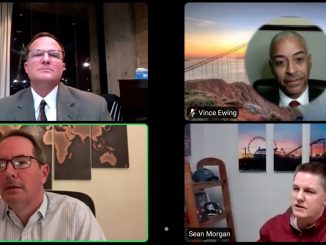

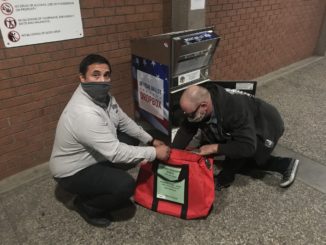
There is no Pallet on South Whitman Place, its hard to trust the integrity of an article when it has obvious factual mistakes
“Pallet shelter” is a commonly used nickname for the Genesis Emergency Housing Site, which I also mentioned by that name. Likewise, I used “Genesis” later in the article when discussing it. I am a bit confused about your criticism. -KM
Thank you News and Review for continuing to print articles worth reading. When I saw the City was going to take away peoples transportation ( shopping carts) and hand them a bag or two to drag their possessions from place to place, I remember thinking about the Grand Jury report and having the definition of insanity play in my head.
This is such important information for Chicoans to know. Chico can become a compassionate small city by addressing these challenges with creativity and heart. Fingers crossed we win at least 3 progressive city counselor seats in November.
It’s great to see in-depth community reporting again. Reporting that brings balance and understanding to the issues. Granted, those who feel differently probably won’t read what others think, feel, or experience, but at least your reporters are working on the stories.
Talking with Amita Gerfin, a Chico native forced to live on the street, is far better than guessing. Angry citizens throw stuff at the homeless? What heart. It sounds like when I lived in Chico. I’d probably be in one of those homeless camps.
Members of the Chico community have always needed affordable housing. I used to find stacks of applications in the laundry room trash where I lived in a claustrophobic, roach-infested studio. I scrubbed and scrubbed, which helped, but even given the conditions, hundreds and hundreds applied for a handful of apartments, and that was long before the nightmare fires, droughts, and homeless population living on the street. Suppose people stop throwing monkey wrenches into the machinery that helps them. How could the homeless problem not improve?
Hopefully, with more reporters watching, people will clean up their act. I’d love to hear what those throwing fireworks, rocks, golf balls, and other garbage say about their actions. Are they bored and looking for adventure? Are they racist and stupid? Homeless people living in the park can’t be all that pleasant on a sunny picnic day, but come on. Give them a break.
No, I doubt good reporting will change attitudes, but at least someone is showing how it affects the down and out in the community, many of whom are still homeless from the Camp Fire, as I understand it.
Thank you!
Addison’s a hero. I hope he gets more support on the City Council through this next election. We need more people who bring compassion and intelligence to their governing, especially where it concerns the unhoused. The Eaton Road encampment is insufficient and inhumane, and we as a community are capable of much, much better than this. CHAT has proven that. Think how many more unhoused people there would be without them–and how many more deaths and how much more despair without Safe Space. Chico has always had a heart. Let’s show it by electing people who lead with theirs.
Thank you for this article. I’m surprised our economic/shelter crisis is not on every City Council Agenda! We are in the midst of a deadly yet preventable crisis that should shame us because we have the means to more effectively mitigate it and we do not.